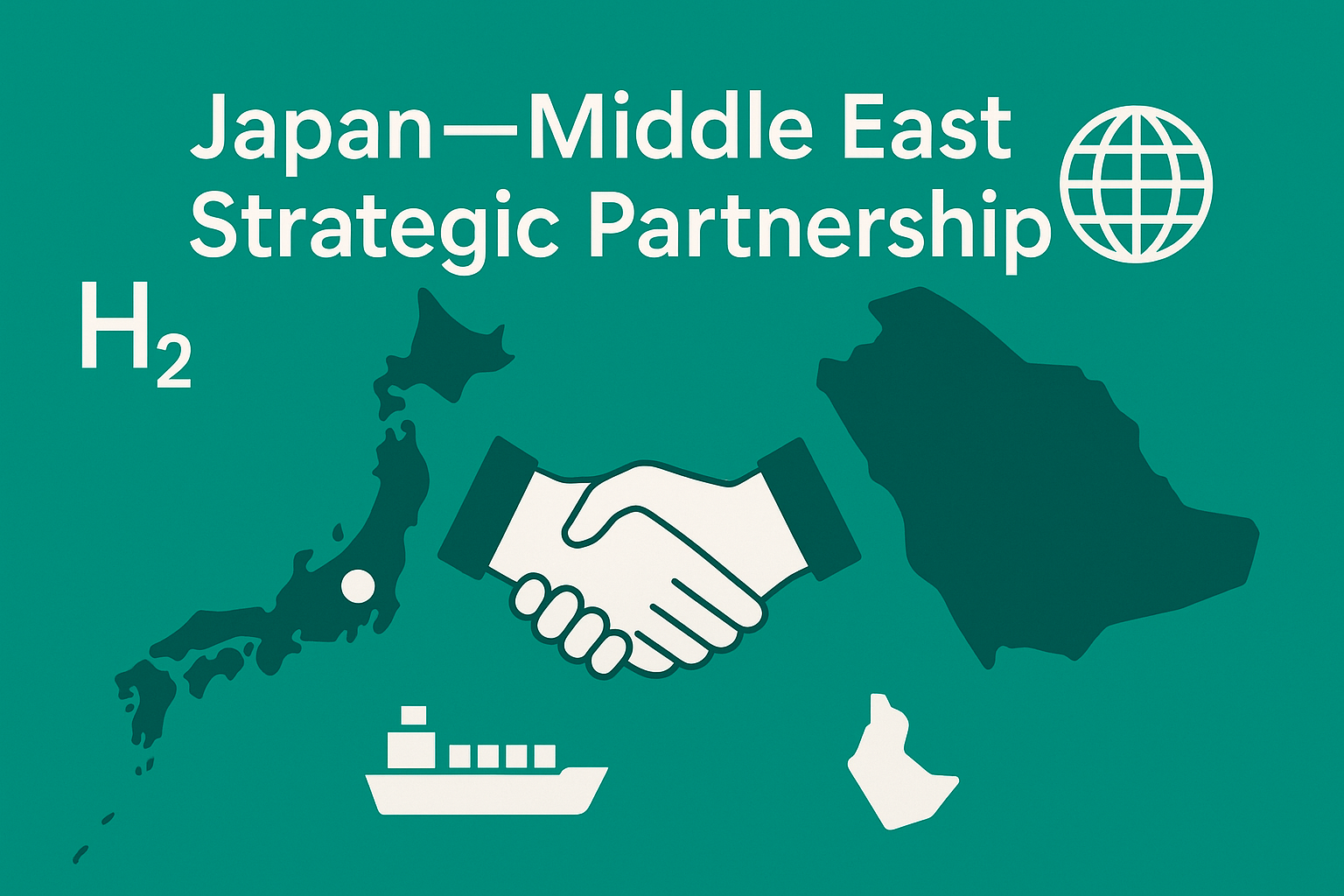— Navigating Stability and Transition in a Multipolar World —
- 1. Introduction: The Middle East in Japan’s Foreign Policy
- 2. Energy Diplomacy: Between Dependency and Decarbonization
- 3. Economic and Technological Engagement: Contributing to Post-Oil Visions
- 4. Geopolitics and Security: A Neutral Contributor to Stability
- 5. Challenges and Strategic Risks
- 6. Future Outlook and Strategic Recommendations
- 7. Conclusion
1. Introduction: The Middle East in Japan’s Foreign Policy
The Middle East holds a central position in Japan’s diplomatic framework—not merely as a source of energy but increasingly as a region of strategic, economic, and geopolitical significance. As one of the world’s largest oil importers, Japan’s national interest depends on regional stability. At the same time, the nature of this relationship is expanding into new domains, including industrial cooperation, security, humanitarian assistance, and innovation.
2. Energy Diplomacy: Between Dependency and Decarbonization
▪ Current Status
- Over 90% of Japan’s crude oil imports originate from the Middle East, mainly from Saudi Arabia, UAE, and Kuwait.
- Political instability—such as the Iran–Israel conflict or potential closure of the Strait of Hormuz—poses serious economic risks for Japan.
▪ Strategic Shift
- Japan is aligning its foreign policy with its 2050 Carbon Neutral Goals, partnering with Gulf states on hydrogen, ammonia, and clean energy technologies.
- Joint pilot projects with Saudi Arabia and the UAE mark a transition toward next-generation energy security and supply chains.
3. Economic and Technological Engagement: Contributing to Post-Oil Visions
▪ Supporting Industrial Diversification
- Japan supports regional strategies like Saudi Vision 2030 and the UAE’s post-oil economic agenda by investing in infrastructure, manufacturing, healthcare, and smart cities.
- Public-private partnerships involving Japanese trading houses (e.g., Mitsubishi Corp.), JICA, and JBIC are key pillars.
▪ Human Capital Diplomacy
- Japan promotes educational exchange through scholarships, joint programs, and language initiatives, fostering long-term human connectivity and goodwill.
4. Geopolitics and Security: A Neutral Contributor to Stability
▪ Maritime Security and Self-Defense Forces
- Japan deploys Maritime Self-Defense Forces for intelligence gathering missions in the Arabian Sea, maintaining independence from the U.S.-led coalition to protect neutrality.
- This unique stance balances strategic interests without entanglement in armed alliances.
▪ Anti-Terrorism and Humanitarian Roles
- Japan has actively engaged in Iraq reconstruction, Syrian refugee assistance, and Palestinian humanitarian support, emphasizing soft power and trust-building.
5. Challenges and Strategic Risks
| Category | Description |
|---|---|
| Geopolitical Tensions | Risks from conflicts involving Iran, Israel, Yemen (e.g., Houthi activity) |
| Balancing Great Powers | Japan must navigate between rising Chinese influence and U.S. expectations |
| Low Public Awareness | Limited understanding among Japanese citizens about Middle East diplomacy |
6. Future Outlook and Strategic Recommendations
- Advance Energy Partnerships
Expand cooperation in hydrogen, ammonia, and renewables to build long-term energy interdependence. - Deepen Multilateral Dialogue
Develop strategic ties with GCC, Arab League, and other regional blocs through comprehensive economic frameworks. - Triangular Diplomacy
Collaborate with third countries like Turkey, India, and Egypt to stabilize and engage the region multilaterally. - Enhance Crisis Preparedness
Rethink Japan’s oil reserve policies, diversify supply chains, and consider backup routes through Africa and Asia.
7. Conclusion
Japan’s evolving relationship with the Middle East reflects a move beyond energy dependency. As the region seeks economic diversification and global relevance, Japan has a critical opportunity to play a stabilizing, innovative, and constructive role. A multilayered, multipolar diplomacy—grounded in neutrality and forward-looking cooperation—will be key to sustainable engagement in the years ahead.


